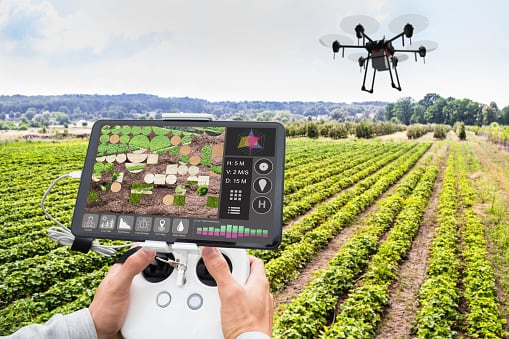This decline in agtech funding was seen across sectors from healthcare and fintech to direct-to-consumer brands.
“The agrifoodtech startup ecosystem in India mirrored the global slump in venture capital funding in 2022,” said the report, by venture capital firms Agfunder and Omnivore.
Furthermore, the total number of deals also decreased from 230 in 2021 to 133 last year.
The report added that despite the “transient headwinds”, the agrifood tech sector will continue to thrive.
Over 80% of India's population resides in districts susceptible to climate-related impacts. Projections suggest that by 2030, climate change-induced factors could potentially lead to hunger affecting over 17 million people in India.
“Rising concerns around the impact of climate change on Indian agriculture have captured the attention of investors, catalysing efforts to deliver efficient and affordable technology solutions to smallholder farmers
“Despite the dip, the sector is a critical emerging space in India for transforming agriculture and ensuring food security. With the responsibility of sustaining 17.7% of the world's population, the country is facing the urgent task of addressing various value chain inefficiencies and mitigating the escalating effects of climate change.”
Startups that bucked the trend were those innovating upstream closer to the farmer and in the supply chain. Such startups raised USD617m, up 50% from USD409m in 2021.
On the other hand, downstream startups raised USD1.7bn in 2022, a 37% decrease from USD2.6bn in 2021.
“Once the pandemic lockdown ended, many downstream ventures struggled to maintain the accelerated pace of growth created by Covid-19 in 2020 and 2021. A highly saturated home delivery market further reduced investor interest. In the coming months, we expect fewer players to enter the downstream market and to see more M&A activity among existing companies,” said the report.
Midstream Technologies also saw a decline in deal activity.
The report noted that the category remains dynamic, attracting USD232m in funding across 14 deals.
Instead, the decrease in deals suggests that various sub-categories within Midstream Technologies are reaching a stage of relative maturity.
Upstream vs downstream startups
The report said that agribusiness marketplaces and the fintech category were the most funded upstream category with USD428m in funding.
Food and agritech company Waycool secured the biggest upstream deal with 117m in funding.
The biggest downstream category was eGrocery, which raised USD776m across 20 deals. This accounted for 32% of overall agrifoodtech funding in India. Notably, eGrocery startups secured the highest number of late-stage deals.
This biggest downstream deal was attributed to Swiggy, an Indian online food ordering and delivery platform with USD700m late-stage funding.




